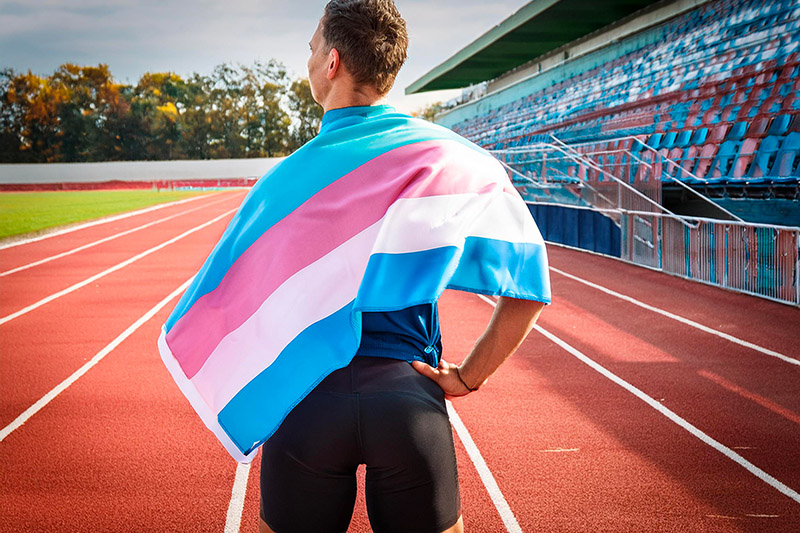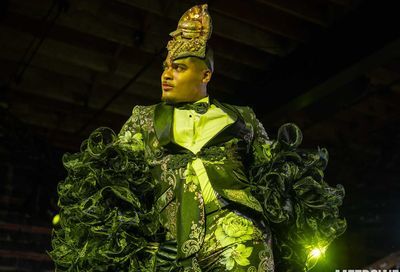Court Keeps West Virginia Transgender Athlete Ban in Place
Court finds that the ban on transgender participation is necessary to ensure equal athletic opportunities in women's sports.

Earlier this month, a federal judge ruled that West Virginia’s ban on transgender athletes competing in female-designated sports is constitutional and may remain in place.
In 2021, Becky Pepper-Jackson, a transgender girl who wished to join her middle school girls’ cross country team, sued state officials, her local school board, the West Virginia Board of Education, and the West Virginia Secondary School Activities Commission, arguing that a recently passed state law prohibiting transgender females from competing against cisgender females was unconstitutional and discriminatory.
At the time, U.S. District Court Judge Joseph Goodwin, of the Southern District of West Virginia, blocked the law from taking effect and allowed Pepper-Jackson to proceed with her lawsuit.
But on Jan. 5, Goodwin rejected Pepper-Jackson’s claim that the law violates Title IX, the federal law that prohibits sex-based discrimination. Instead, he found that the ban is constitutional and that the state had a legitimate interest in ensuring that cisgender female athletes are not placed at a competitive disadvantage when participating in sports.
“I recognize that being transgender is natural and is not a choice,” Goodwin wrote in his decision. “But one’s sex is also natural, and it dictates physical characteristics that are relevant to athletics.”
Goodwin also found that the legislature’s definition of “girl” as being based on “biological sex” is “substantially related to the important government interest of providing equal athletic opportunities for females.”
Goodwin said that while Pepper-Jackson, “like all transgender people, deserves respect and the ability to live free from judgment and hatred for simply being who she is,” her lawyers had failed to prove that lawmakers were motivated by anti-transgender animus when they passed the law.
Noting that there were no widespread reports of transgender females competing in sports at the time the lawsuit first passed, Goodwin acknowledged that the issue of transgender participation has become more widespread, even becoming debated at the national level, as transgender athletes, such as former UPenn swimmer Lia Thomas, gain more recognition.
At the time the lawsuit was filed, the West Virginia Secondary School Activities Commission, which regulates sports in the state, reported that it had not received any complaints about transgender athletes participating on girls’ sports teams, reports The Washington Post.
West Virginia Attorney General Patrick Morrisey celebrated the ruling as a victory for cisgender women.
“This is not only about simple biology, but fairness for women’s sports, plain and simple,” Morrisey said. “Opportunities for girls and women on the field are precious and we must safeguard that future.”
The ACLU of West Virginia, which represented Pepper-Jackson, in her lawsuit, says it is reviewing the decision to determine what future action will be taken.
In a joint statement with the national ACLU, Lambda Legal, and co-counsel Cooley LLP, the ACLU of West Virginia declared the ruling “disappointing.”
“The fact is the equal and fair participation of transgender youth takes nothing away from cisgender youth and helps to maintain a level playing field for all youth,” the organizations said in a statement. “While we consider our next steps, we extend our heartbreak and solidarity to the transgender West Virginians impacted by this law and the families whose trans youth are being needlessly harmed by it.”
Support Metro Weekly’s Journalism
These are challenging times for news organizations. And yet it’s crucial we stay active and provide vital resources and information to both our local readers and the world. So won’t you please take a moment and consider supporting Metro Weekly with a membership? For as little as $5 a month, you can help ensure Metro Weekly magazine and MetroWeekly.com remain free, viable resources as we provide the best, most diverse, culturally-resonant LGBTQ coverage in both the D.C. region and around the world. Memberships come with exclusive perks and discounts, your own personal digital delivery of each week’s magazine (and an archive), access to our Member's Lounge when it launches this fall, and exclusive members-only items like Metro Weekly Membership Mugs and Tote Bags! Check out all our membership levels here and please join us today!




























You must be logged in to post a comment.